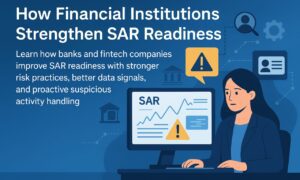The Netherlands, a country known for its rich trading history and financial prowess, is currently witnessing a remarkable shift in its financial landscape. This transformation is largely driven by the fast growth of forex and derivatives trading. As these financial instruments gain prominence, they are reshaping how investors, institutions, and the broader economy operate within the Dutch market.
Understanding Forex and Derivatives Trading
Before diving into the impact, it’s essential to understand what forex and derivatives trading entail. Forex, short for foreign exchange, involves buying and selling currencies on a global decentralized market. This market is the largest and most liquid in the world, with a daily trading volume exceeding $6 trillion.
Derivatives, on the other hand, are financial contracts whose value depends on an underlying asset. These assets can range from currencies to commodities, stocks, or indices. Common derivatives include futures, options, and swaps. Traders use derivatives for hedging risks or speculating on price movements.
Together, forex and derivatives trading offer diverse opportunities for profit, risk management, and portfolio diversification. Now, let’s see how they are influencing the Netherlands.
The Growing Popularity of Forex and Derivatives in the Netherlands
The Netherlands has traditionally been a hub for international trade and finance, partly because of its strategic location and robust infrastructure. Recently, however, the rise of online trading platforms and fintech innovations has made forex and derivatives trading more accessible to Dutch investors.
Firstly, technology has dramatically lowered entry barriers. Today, retail investors can trade forex and derivatives with just a few clicks. Moreover, regulatory frameworks have evolved to protect investors while encouraging innovation. The Netherlands Authority for the Financial Markets (AFM) plays a crucial role in maintaining transparency and fairness.
Consequently, more individuals and institutions are participating in these markets. This increased participation enhances liquidity and market efficiency, which benefits all stakeholders.
Impact on Dutch Financial Institutions
Dutch banks and financial institutions are also adapting to this shift. Many traditional banks have incorporated forex and derivatives products into their service offerings. They provide clients with advanced trading tools, educational resources, and advisory services to navigate these complex markets.
Furthermore, Dutch asset managers and hedge funds are increasingly using derivatives to manage portfolio risks and enhance returns. For example, currency derivatives help multinational companies hedge against adverse currency fluctuations. This risk mitigation is vital for Dutch exporters and importers given the country’s strong international trade ties.
Additionally, financial institutions are investing in technology and data analytics to improve trading strategies. Algorithmic trading and artificial intelligence are becoming integral to forex and derivatives trading, enabling faster and more accurate decision-making.
Boosting the Dutch Economy through Innovation and Investment
The growth of forex and derivatives trading is more than just a financial trend; it is a catalyst for broader economic development. Increased trading activity attracts foreign investment and promotes financial innovation. For instance, fintech startups in Amsterdam are creating cutting-edge trading platforms and blockchain-based solutions.
Moreover, the trading sector generates employment opportunities across various domains, including technology, compliance, and customer support. This job creation supports the Dutch economy and fosters a knowledge-based workforce.
Importantly, by enhancing risk management capabilities, derivatives trading contributes to economic stability. Businesses can better manage uncertainties related to currency exchange rates, interest rates, and commodity prices. This stability encourages entrepreneurship and long-term investment.
Challenges and Regulatory Considerations
While the benefits are clear, the rise of forex and derivatives trading also presents challenges. Market volatility, leverage risks, and potential fraud are concerns that require vigilant oversight.
Dutch regulators have responded by implementing strict guidelines on leverage limits, transparency, and investor protection. They also promote financial literacy to ensure traders understand the risks involved.
Moreover, the global nature of forex markets means international cooperation is vital. The Netherlands collaborates with European Union authorities and global financial bodies to harmonize regulations and monitor cross-border activities.
The Future Outlook: A Financial Hub in the Making
Looking ahead, the Netherlands is poised to strengthen its position as a financial hub for forex and derivatives trading. Continuous advancements in technology, combined with supportive regulations, will likely attract more traders and institutional players.
Emerging trends such as decentralized finance (DeFi) and blockchain integration offer exciting possibilities. These innovations could further democratize access to derivatives markets and enhance transparency.
Furthermore, sustainable finance is becoming a priority. The Netherlands may lead the way in developing green derivatives linked to environmental outcomes, aligning finance with global sustainability goals.
Conclusion
Forex and derivatives trading are transforming the financial Space in the Netherlands in profound ways. By enabling more efficient risk management, attracting investment, and fostering innovation, these markets contribute significantly to the country’s economic vitality.
Furthermore, the Dutch financial sector will continue to adapt and thrive. Whether you are an individual investor, a financial professional, or a policymaker, understanding this transformation is crucial to leveraging new opportunities and navigating the challenges ahead. The Netherlands’ rich trading heritage now meets cutting-edge financial instruments, creating a dynamic and resilient financial ecosystem ready for the future.



































